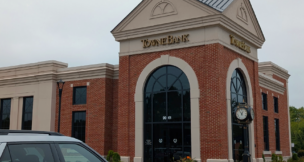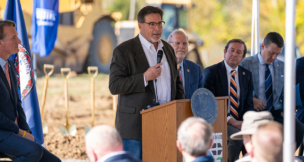State and federal officials agree on alternative route for U.S. 460.
The Virginia Department of Transportation (VDOT), the Federal Highway Administration (FHWA) and the U.S. Army Corps of Engineers have identified an alternative for the much-maligned U.S. Route 460 highway project.
The state spent $300 million on what was proposed as a 55-mile highway from Suffolk to Petersburg before Gov. Terry McAuliffe stopped work on it last year after learning that the project did not have required environmental permits.
On its website Monday, VDOT said in a press release that the parties have agreed on a route that appears to be the least environmentally damaging practicable alternative — a Corps requirement — to improve the U.S. 460 corridor in southeastern Virginia.
It would improve 17 miles of 460 from Suffolk to west of Zuni. A new four-lane divided highway would be built from the U.S. 460/58 interchange in Suffolk to west of Windsor. From west of Windsor to west of Zuni, the existing 460 would be upgraded to a four-lane divided highway and include a new bridge across the Blackwater River to eliminate long standing flooding problems.
The plan would displace 15 residential properties, three commercial properties, three farms and one non-profit property. In the event of a hurricane, it would have the capacity to evacuate 13,400 vehicles per hour with seven lanes, versus a no-build alternative that also had been under consideration.
“Secretary Layne has clearly stated his commitment to finding effective transportation solutions that minimize impacts to wetlands,” Colonel Paul Olsen, commander of the Corps' Norfolk District, said in the statement. “The Federal Highway Administration, VDOT and the Corps cooperatively developed a draft Supplemental EIS that ensures environmental resources are identified and fully evaluated against a full range of alternatives. I am confident that with the additional analysis and upcoming public comment periods required by law, VDOT will develop a project that balances the economic and transportation needs of the region with our responsibility to protect our natural and aquatic resources.”
Virginia's Transportation Secretary, Aubrey Layne, added, “We still have a lot of work to do, but it is important that we continue to work together to improve safety and hurricane evacuation with an alternative that impacts the fewest possible acres of wetlands.”
Unlike the $1.4 billion toll road originally envisioned for 460 by former Gov. Bob McDonnell and his administration, the cost of the alternative is estimated to be between $375 million and $425 million. Its impact on wetlands would be much less – 52 acres compared to as many as 486 acres under the old plan.
VDOT will present the recommended alternative to the Commonwealth Transportation Board on Tuesday, Jan. 13, during its workshop in Richmond.

















